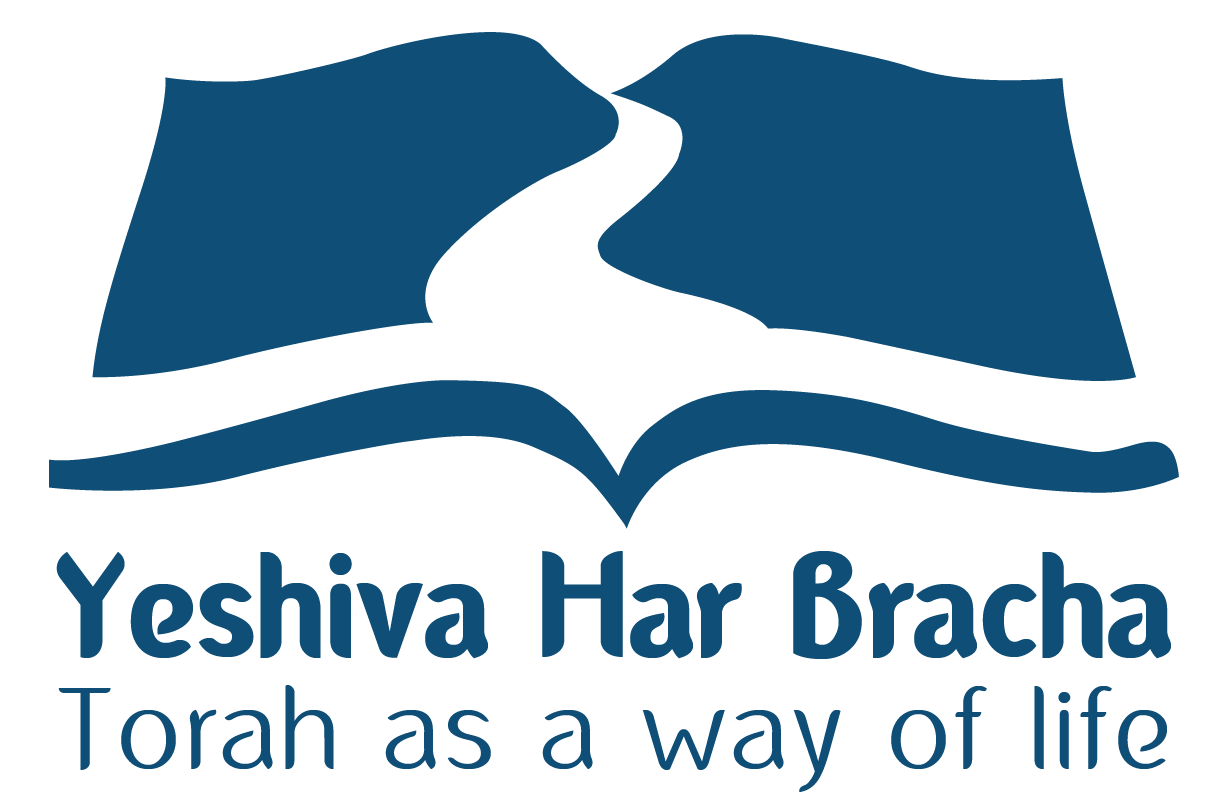Ideally, one should prefer to give tithes to the poor, or to Torah scholars * It is also possible to give the tithe for other mitzvah purposes, such as building a synagogue or settling the Land of Israel * One should not give money tithes to media outlets or organizations that strengthen conservatism * On an individual basis, it is permissible to donate only to an organization that, based on thorough familiarity, is certain to operate in a just and beneficial manner for settling the Land, and Israel’s security * Although the law of the “condemned city” is severe and cruel, our Sages learned from the Torah that there is actually mercy in it
Q: In light of the national state of emergency, there is financial distress among right-wing organizations trying to maintain the sovereignty of the Jewish people in their land. 1) Is it permissible to donate from ma’aser kesafim (money tithes) to organizations interested in fighting progressive culture, and strengthening family values in the general public? 2) Is it permissible to donate from money tithes to an organization that uses secular military language and concepts, but aims to strengthen the security of the state and the Jewish people’s hold on their Land? 3) Is it permissible to donate from money tithes to an organization interested in explaining and clarifying the conservative approach to democracy, in order to return power to the people from the progressive elites? 4) If indeed this is possible – in all these cases, is it permissible to donate specifically to organizations that carry out activities on the subject, or can one also donate to commercial media outlets (that sell advertising space) such as newsletters, newspapers, podcasts and other explainers, seeking donations to cover their expenses?
A: It is worth mentioning first that some poskim (Jewish law arbiters) say that tithe money is intended for Torah scholars or the poor, and it is forbidden to give it for other mitzvah purposes, such as building a synagogue (Maharil as brought in Rema Yoreh Deah 249:1). Others say that it is permissible to use tithe money for other mitzvah purposes as well (Maharam as brought in Maharshal and Shach 249:3). In practice, it is customary to rule that the tithe can also be given for other mitzvah purposes such as building a synagogue or settling the Land of Israel, but ideally it should preferably be given to the poor, or Torah scholars.
However, when the donation is to right-wing organizations, two additional problems arise. First, even when the purpose is virtuous, to strengthen Israel’s security, since these are issues that are subject to political debates, there is a reasonable concern that the donation will assist a specific candidate. For example, if the organization or media outlet supports the Prime Minister and fights right-wing candidates who do not support him; or vice versa, supports right-wing candidates who invest most of their efforts in replacing him, it is difficult to say that these are mitzvah purposes. And if they also condemn opponents unfairly, there is even a transgression in their actions. All the more so when it comes to a media outlet that takes a political line, which in the opinion of many people is harmful in its views, or in its tendency to provoke disputes.
Second, even when distancing from political debates about individuals and movements and dealing only with ideas, often it is impossible to know whether it is a good principled opinion. For example, some will argue that security consciousness should be strengthened in detachment from the idea of faith, and others say that this approach will not help, and to some extent, will even cause harm. And the opposite, as well. Also, sometimes those who support conservative positions abandon Torah values that are perceived as liberal or leftist (welfare policies, permissible abortions, respect for those with opposite inclinations, brotherhood with non-observant, or Reform Jews), and in doing so, provoke disputes against important Torah positions.
On the other hand, when strengthening general education in Torah and love for the People and the Land in institutions that do not encourage dispute, it is clear that the donation goes to a positive purpose, as it strengthens the foundation of all good things.
Therefore, in general, it seems that money tithes should not be given to media outlets or organizations that strengthen conservatism. Only for someone who, based on thorough familiarity, is certain that the body to which he wants to direct his donation operates in a just and beneficial manner for settling the Land and Israel’s security, on an individual basis, it is permissible to donate to it.
The Condemned City (Ir Ha-Nidachat)
This Shabbat in the Torah portion ‘Re’eh’, we will read about the commandment of the “condemned city”, according to which, when the majority of the residents of a city in Israel were led to sin in idolatry – it is a commandment to execute all the sinners by the sword, and to burn all its houses and property, and leave it desolate forever (Deuteronomy 13:13-18). When a person sins in idolatry, not in the context of a condemned city, he is liable to skila (stoning), which is the most severe death penalty, but only he is punished, and bequeaths his property to his heirs. In contrast, the sinners in the context of a “condemned city” are punished with a less severe death, death by sief (sword), but all their property is burned, and consequently, they do not bequeath it to their relatives.
It can be said that the law of the “condemned city” is like the law of rebels, for just as rebels in all kingdoms were liable to death by sword, because they undermined the existence of society and exposed it to terrible dangers, so too, the sinners of the “condemned city” rebelled against the foundations of Israeli existence, which became a people at Mount Sinai.
Procedures of the Condemned City
Before carrying out this severe law, the Torah instructed to inquire and investigate the matter thoroughly. If it was found that this had happened, the Beit Din Ha-Gadol (Sanhedrin) of seventy-one elders would send Torah scholars to the people of the city, to warn them, and bring them to repentance. If they did not repent, the Beit Din Ha-Gadol would instruct the Jews to send an army against them, and take all the inhabitants of the city captive, in order to judge them before a small Sanhedrin of twenty-three judges. Anyone who was testified by two witnesses that after being warned, he intentionally worshiped idolatry, is liable to death.
If it was found that the sinners were a minority of the city’s inhabitants, the law of the sinners is like the law of individual sinners whose punishment is stoning, and their property goes to their heirs. If it was found that the majority of the city’s inhabitants are liable to death, the Beit Din Ha-Gadol would determine that their law is like the law of a ‘condemned city’, and all the sinners are killed by the sword, and their property and houses are burned. And those who did not sin are not killed, but their property is burned along with the property of the rest of the city’s inhabitants. And even if those who did not sin were righteous, their property is burned, because their property caused them to remain living with the wicked, despite the danger that they, or their children, would be negatively influenced by them (Sanhedrin 112a; Rambam Avodah Zarah 4:6-7).
According to the majority of Tannaim (rabbinic Sages whose views are recorded in the Mishnah, from approximately 10–220 CE.), the children of a condemned city are not killed, because sons shall not be put to death for the sins of the fathers (Sages, and Rabbi Akiva, and so wrote Yad Ramah and Parashat HaKesef). However, according to Rambam (Avodah Zarah 4:6), the law is according to Rabbi Eliezer, that even the children are killed with their parents. Some explain that this refers to children who have understanding (Pri Chadash), and some explain that according to Rambam, even children who do not have understanding are killed (Abarbanel). And all this is when their mother also sinned, but if she did not sin, they are not killed (Yad Peshutah).
Death Penalties in the Torah
In practice, although the Torah mandated death for thirty-six offenses, in reality, execution was very rare in Israel, incomparably less than what was customary in all the surrounding nations. To the extent that our Sages said that a Sanhedrin that executed a person in seven years is called “destructive”, and some say, once in seventy years (Mishnah Makkot 1:10). And even those rare executions were mainly of murderers, so that for idolatry, they almost never executed.
And yet when we learn about the thirty-six offenses punishable by death, those who commit them are called “chayav mita” (“liable to death”). There are three reasons for this: 1) to express the severity of the sins, that in principle, this is the appropriate punishment for them. 2) In very rare cases, this was indeed their punishment. 3) Those who sin in the severe sins are liable to death by Heaven, in “karet“.
Can there be a Condemned City?
Our Sages disagreed on the question of whether the law of the ‘condemned city’ was intended to teach practical law, or to teach a principle. Some say that there was a case where they judged a condemned city, as Rabbi Yonatan said: “I saw it, and I sat on its ruins.” However, according to many Sages: “A condemned city never was, and never will be, and why was it written? Expound, and receive reward” (Sanhedrin 71a; 113a). In other words, that by learning the law of the ‘condemned city’, we will understand the severity of idolatry, and we will distance ourselves from any hint of it, and this will be our reward.
The reason it is impossible for there to be one, is because it is difficult to assume that kosher witnesses will be found who will testify about the majority of the city’s inhabitants that they worshiped idolatry despite being warned. And furthermore, Rabbi Eliezer said that even if there was one mezuzah in the city, it is not made a ‘condemned city’, and it is difficult to assume that a city will be found that will rebel to such an extent in all matters of Judaism, until there is not one mezuzah in it.
The Mercy in Punishment
Although the law of the ‘condemned city’ is severe and cruel, our Sages learned from the Torah that there is actually mercy in it, as it prevents society from deteriorating to idolatry that leads to cruel acts many times over. This is what our Sages said in the Mishnah: “The Holy One, Blessed be He, said, If you carry out judgment on a condemned city – I consider it as if you offer a burnt offering before Me”, as it is said: ‘A whole offering to the Lord your God’. For as long as the wicked are in the world, there is wrath in the world; when the wicked perish from the world, wrath is removed from the world” (Sanhedrin 111b). Even according to the opinion that in practice there was no ‘condemned city’, there is mercy in this law, because the internal agreement that it is appropriate to carry out severe judgment on a group that unites to worship idolatry, prevents calamity and arouses mercy.
From the Laws of the Condemned City
The law of the ‘condemned city’ applies to regular cities, “one of your cities”, therefore, Jerusalem and the cities of refuge are not made a ‘condemned city’.
Also, a ‘condemned city’ is not made on the border, that is, on the border of Israel, so that Gentiles will not enter the Land of Israel through the desolate place (Sanhedrin 16b; Rambam ibid. 4:4). The property of the city’s inhabitants must be burned and it is forbidden to benefit from it. The property that needs to be burned is the property of the city’s inhabitants that is found in the city, but property of people from outside the city that was deposited with the inhabitants of the condemned city, is not burned. Also, property of the city’s inhabitants that was outside the city is not burned. If it belongs to people who did not sin, it remains in their possession; and if it belongs to wicked people who were killed, the property is given to their heirs (ibid. 4:7; 10). It is forbidden to build houses on the ruins of a ‘condemned city’, but fruit trees are allowed to be grown (ibid. 4:8).
This article appears in the ‘Besheva’ newspaper and was translated from Hebrew.
In loving memory of our beloved friend and partner, Cherna Moskowitz, who consistently supported the community and Hesder Yeshiva of Har Bracha for years. May her memory be for a blessing.








